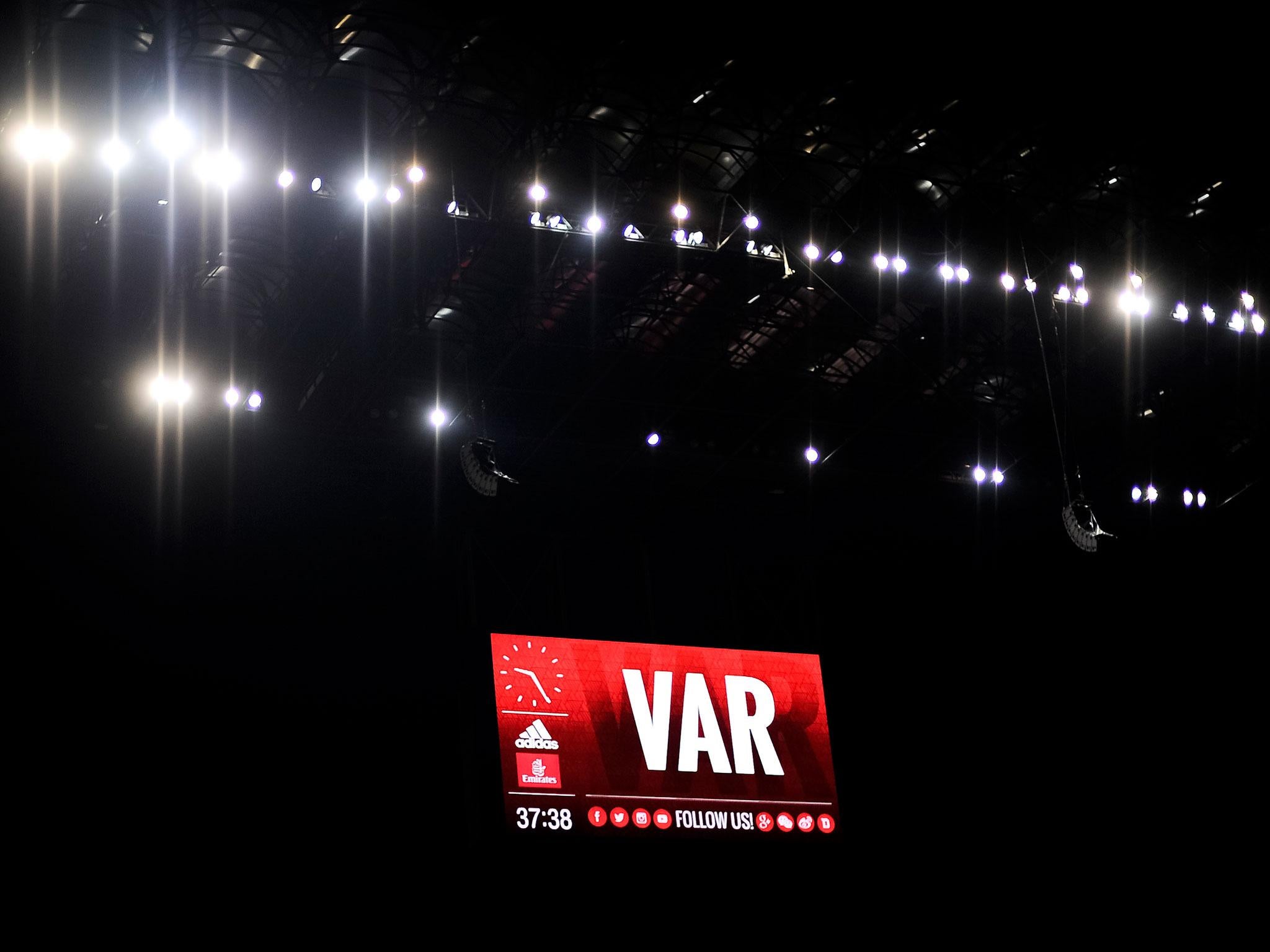VAR set for World Cup use after Fifa panel unanimously agrees to write technology into laws of game
Fifa's rule-making panel, known as IFAB, voted on Saturday to begin updating the game's written rules to include video assistant referees (VAR)

Video Assistant Referees will be used at this year's World Cup in Russia after the system was unanimously approved on a permanent basis at the International Football Association Board's annual general meeting in Zurich.
Before making the decision, members of the game's law-making body (IFAB) were presented with the results of independent analysis of the use of VARs conducted by Belgian university KU Leuven since March 2016.
The football associations of England, Scotland, Wales and Northern Ireland had one vote each, while FIFA, representing all other national federations, had four, with six required for a change in the laws.
"As of today, video assistant referees are part of football and this is certainly very important news," said FIFA president Gianni Infantino, who chaired the meeting.
Speaking at a press conference, Infantino continued: "Together with our colleagues we have taken some very important decisions today.
"We had, as you can imagine, a very intense morning, fully aware of our responsibility to take an important decision for football.
"This topic was discussed and debated for decades. VAR is good for football, is good for refereeing, it brings more fairness in the game and, for these reasons, we have decided to approve VAR."
The IFAB confirmed the VAR will be used, with the aim of reducing unfairness caused by 'clear and obvious errors' or 'serious missed incidents', in relation to the following:
- Goal / no goal
- Penalty / no penalty
- Direct red card (not second yellow card)
- Mistaken identity (when the referee cautions or sends off the wrong player)
Following the IFAB's unanimous approval, it is almost certain that the FIFA Council will sanction the use of the VAR system at this summer's World Cup in Russia when it meets in Colombia later this month, and Infantino is confident it will have a a positive effect.
"Of course it will have an impact on the World Cup and on the matches, and it will have a positive impact on the matches, this is what the studies show," he said.
"From the 1,000 matches, approximately, that were part of the experiment, the level of accuracy of the decisions taken by the referees increased to 99 per cent.
"It's almost perfect. Perfection in our world does not exist, but VAR certainly gets us closer.
"I was extremely sceptical personally on VAR, but we tested it, and I personally came quite a long way.
"I can guarantee our referees which will be at the World Cup will be ready. They have trained for the last two years."

The VAR trials in England have thrown up a number of controversies, with particular criticism over how long decisions take and the fact the crowds are not kept informed as to what is going on.
The system was labelled "embarrassing" by Tottenham boss Mauricio Pochettino earlier this week after his team's FA Cup fifth-round replay against Rochdale was delayed several times by VAR interventions.
Football Association chief executive Martin Glenn acknowledged: "Communication to the crowd has to be better because people aren't really sure what's going on."
He continued: "I'm not going to ignore the criticism, but I think we have to put things into context - it's only been 10 games... FA Cup games, some EFL Cup games. We need more games until we get the sort of quality we see in Italy, Germany, Portugal, but we will."
Infantino added: "We can see in the matches, where the game is being interrupted, this creates even an additional moment of tension where everyone is waiting.
"But at the end of the day, what is more important for us is that we can help the referee to take the right decision. We bring more fairness in the game with this. One clear mistake that the referee does every three games... we can limit this to once every 19 games. That must be the main objective."
PA
Join our commenting forum
Join thought-provoking conversations, follow other Independent readers and see their replies
Comments
Bookmark popover
Removed from bookmarks